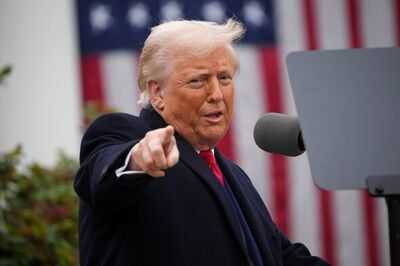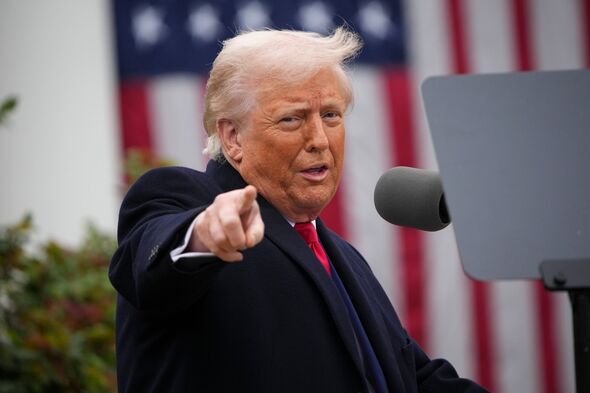
Britain is coming out in better shape than the on tariffs, Donald Trump revealed in a historic speech on Wednesday evening. The US President stood in the White House's Rose Garden to make a "declaration of economic independence" on what he called "Liberation Day" for the States.
During his speech, he provided more details on the feared tariffs he had threatened the world over the past weeks. Mr Trump's administration has decided to . Both the UK and the European Union were among those affected by the sweeping move.

But Mr Trump appeared to consider the special relationship between London and Washington when he . On the other hand, EU member states will be charged a 20% levy.
Conservative Party's trade spokesman, Andrew Griffith, noted the silver lining in the sweeping tariffs being applied by the US. He commented on the reciprocal tariffs: "This is disappointing news which will worry working families across the country. Labour failed to negotiate with President Trump's team for too many months after the election, failed to keep our experienced top trade negotiator, and failed to get a deal to avoid the imposition of these tariffs by our closest trading partner.
"The Chancellor's emergency budget of just a week ago with its inadequate headroom is now at risk, casting uncertainty about more taxes or spending cuts. Sadly, it is British businesses and workers who will pay the price for Labour's failure."
He added: "The silver lining is that - which Labour ministers voted against no less than 48 times - means that we face far lower tariffs than the EU: a dividend that will have protected thousands of British jobs and businesses.
"President Trump is an admirer of Britain and our negotiations in government showed he wants to do a deal. Labour must swallow their pride, put Britain's first and get back round the negotiating table to agree a fair deal to protect jobs and consumers in both the UK and the US alike."
Mr Trump called his tariff policy "kind reciprocal," saying he could've been much harsher on US trading partners. The president said the steep tariff rates he's imposing don't match the levies that some countries impose on US exporters.
Mr Trump also used his tariff speech to champion the Gilded Age again. As he has repeatedly since starting his second term, the US President suggested that the country was at its wealthiest when it was a "tariff nation" between 1870 and 1913.
However, economists and historians say that while the US did grow between 1870 and 1913, that was mostly due to immigration and was wracked by inequality rather than by the use of tariffs.